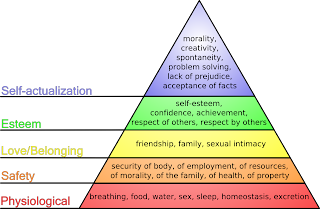Looking at German in the US, there is actually not so much left from the German language in the USA. There are also a considerable amount of people learning it, but considering the fact that the Germans were one of the largest group of immigrants in the US (see: Wp: History of Immigration to the US and also
Schiffmann 1996, Google-books, p. 210-241). With regional differences the until WWI German Instruction in the US was possible, which could maintain German as a heritage language. But with the
Meyer vs. Nebraska (Wp) ruling of the Supreme court only Language Education in English was legal.
Germans are good language learners and when they live in a new country they adapt, therefore German in the German-Studies in the US is gone.I do not mean the
German learning and teaching at schools in the US, this is still different. But if there is a German-US cooperation in any form the German part is normally not insisting on the German language. Why should they? German with an academical background can speak the language. So why learning German in the first place? Of course for living in Germany, German is still a valuable asset, especially for living in Germany a longer time or making a career in Germany. But why should an academic with a background in history, social science or cultural studies should learn German? My answer for this would be language for special purpose (Fachsprache). But is this really true and to what extend? The problem for language for special purpose is our days is that an overview is really complicated, at least on the disciplinary level. It is therefore very difficult for one author (like me) to judge this generally. I can give only my opinion on that in 3 areas:
- Systems theory (Social Sciences, especially N. Luhmann)
- Political Philosophy (especially Hannah Arendt)
Systems theory is popular on both sides of the
pond (about this word, from World Wide words), it originated in the US as
General Systems Theory (Wikipedia gives a redirct) and one of the most recent and elaborate versions is the Theory of
Social Systems of
Niklas Luhmann, which is also based partly on the Social Systems theory of
Talcott Parsons (Wikipedia has backgrounds). Although Luhmann published also in English and a lot of his works are translated into English, his reception in the inner circle countries (esp. US and UK) is still limited, compared to Germany, where he reached a quite interdisciplinary audience.
My personal revaluation for this was reading the insightful
Identity & Control (Google) from
Harrison C. White (Wp), which is among other topics also develops a thick descriptions of institutions (Chapter 5: Institutions & Rhetorics). White claims in this that there that Luhmann has only a very limited theory of institutions. I was very surprised,, because Luhmann was "Verwaltungswissenschaftler", which is translated with mangement science or better with organizations science. But his works about Organization were not translated at this time, which is in parts different now, because Luhmanns opus magnus on this field "Organization & Decision" (Google) translated 2018.
The political Philosophy of Hannah Arendt is in itself multilingual. Although she was writing only her early works in German, important parts of the German philosophy (Kant, Kritik d. Urteilskraft) are an important foundation of her work. Moreover she translated parts of her writings into German and some books are quite different ("
The Human Condition" and the German translation "Vita activa"). Hannah Arendts writings have a broad reception in the US and in Germany. It is without doubt that the political theory of Hannah Arendt changed because of her live in America (see the
book-review about the book "The state I am in"), but important parts can't be understood without central German concepts ("Urteilskraft" as "judgement" or "power of judgement" in English). But the new edition of Hannah Arendt's complete works (
Gesamtausgabe, see Link) is offering a chance for a bilingual project on a high reflective level. The implications for this are also far-reaching, not only a head count of learners, but the implications of the language can be seen as important. Of course these implications are quite complicated to meassure, but if it can be shown that it is useful to have German in a multilingual mix of languages this would unpack a lot of potentials for the German language in the US and worldwide.







